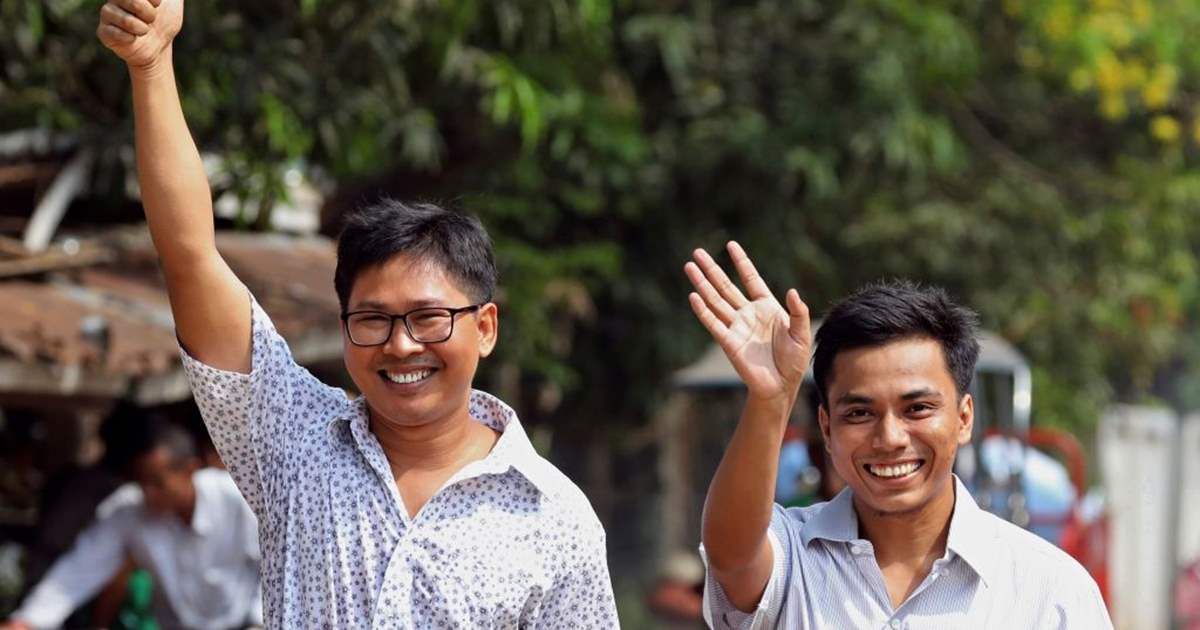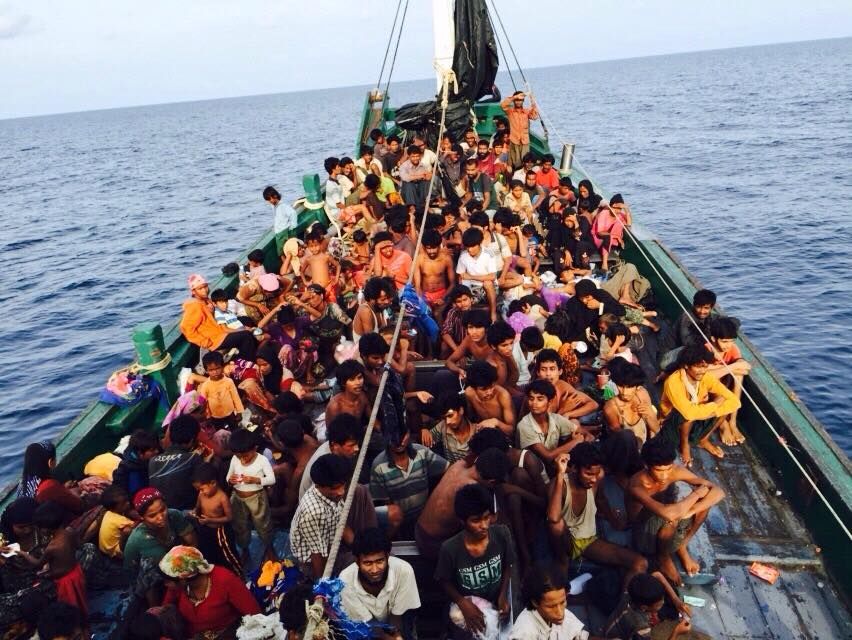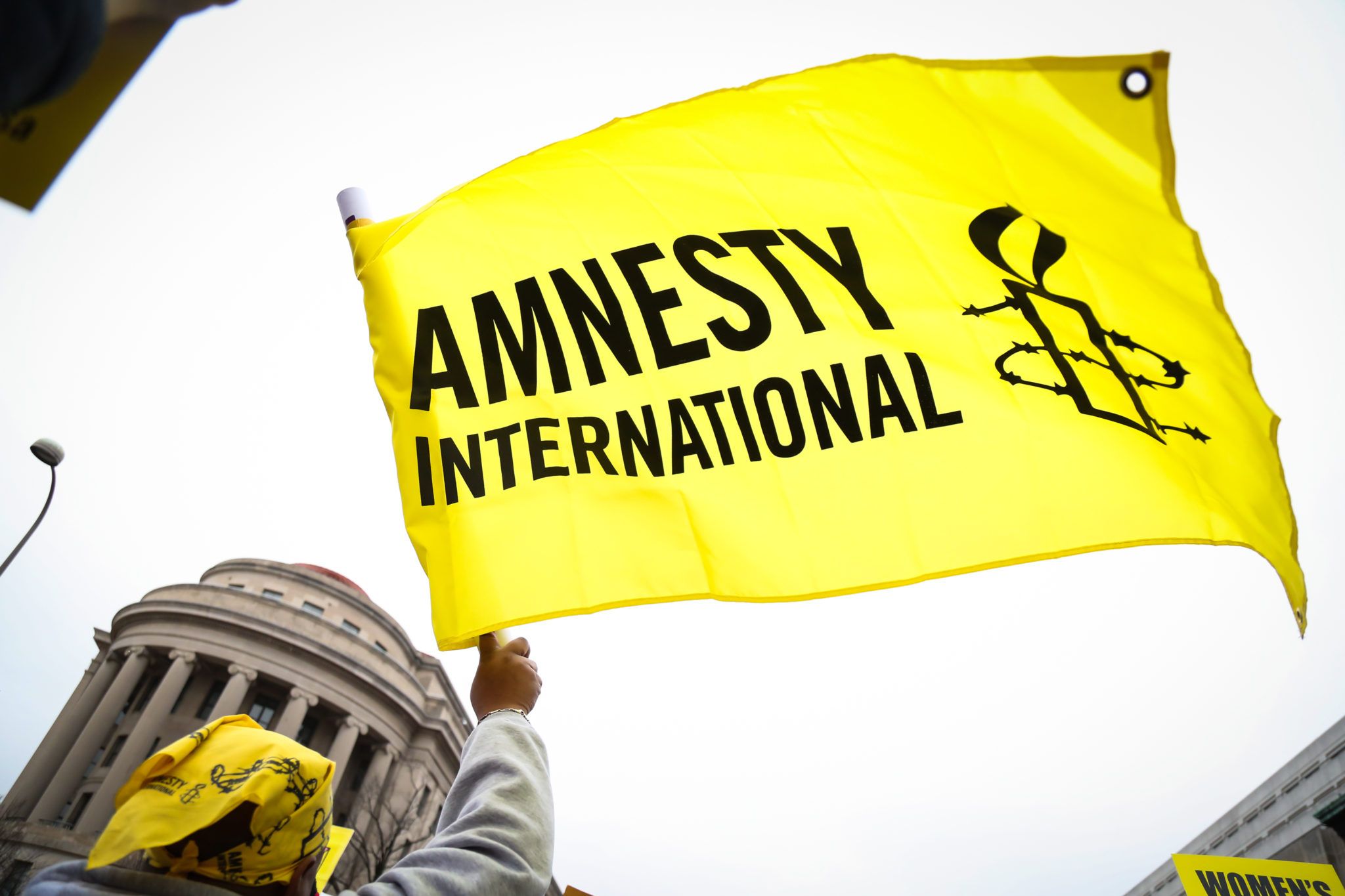Civil society reiterating political parties' policies must recognize diverse human rights and civil and political rights and economic, social and cultural rights, environmental rights, migrant workers, refugees, persons with disabilities, children, women, LGBTQi and ethnic groups in Thailand
4 April 2023
Amnesty International
Bangkok, 4 April 2023 - Civil society organizations in their press conference on the “Civil Society's Agenda for the 2023 Thailand Election” public discussion at the Bangkok Art and Culture Centre (BACC) have proposed recommendations to representatives of political parties and the public on a variety of human rights issues covering civil and political rights and economic, social and cultural rights, environmental rights, migrant workers, refugees, persons with disabilities, children, women, LGBTQIA+ and human rights and development and the Indigenous groups in Thailand.
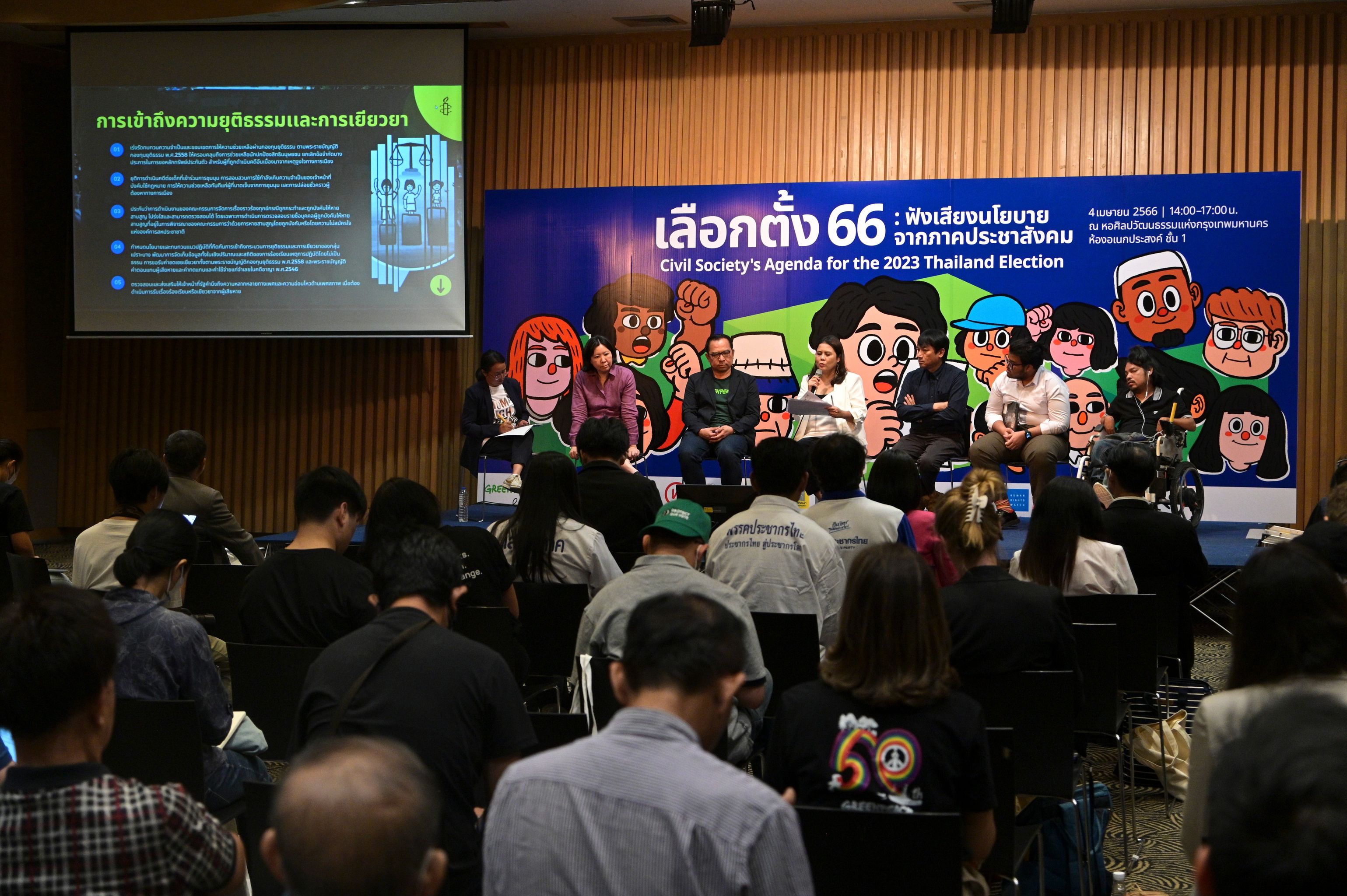
A royal decree announcing the dissolution was published in the Royal Gazette on 20 March 2023 prompting the Election Commission of Thailand (ECT) to hold a general election at the latest within 45-60 days from the day of the House Dissolution. Later, the ECT has fixed Sunday 14 May 2023 for the next general election.
Until now, civil societies have developed human rights policies to propose to candidates from political parties to encourage them to prepare various policies through the public consultation and to place an importance on human rights policies which are more comprehensive and inclusive.
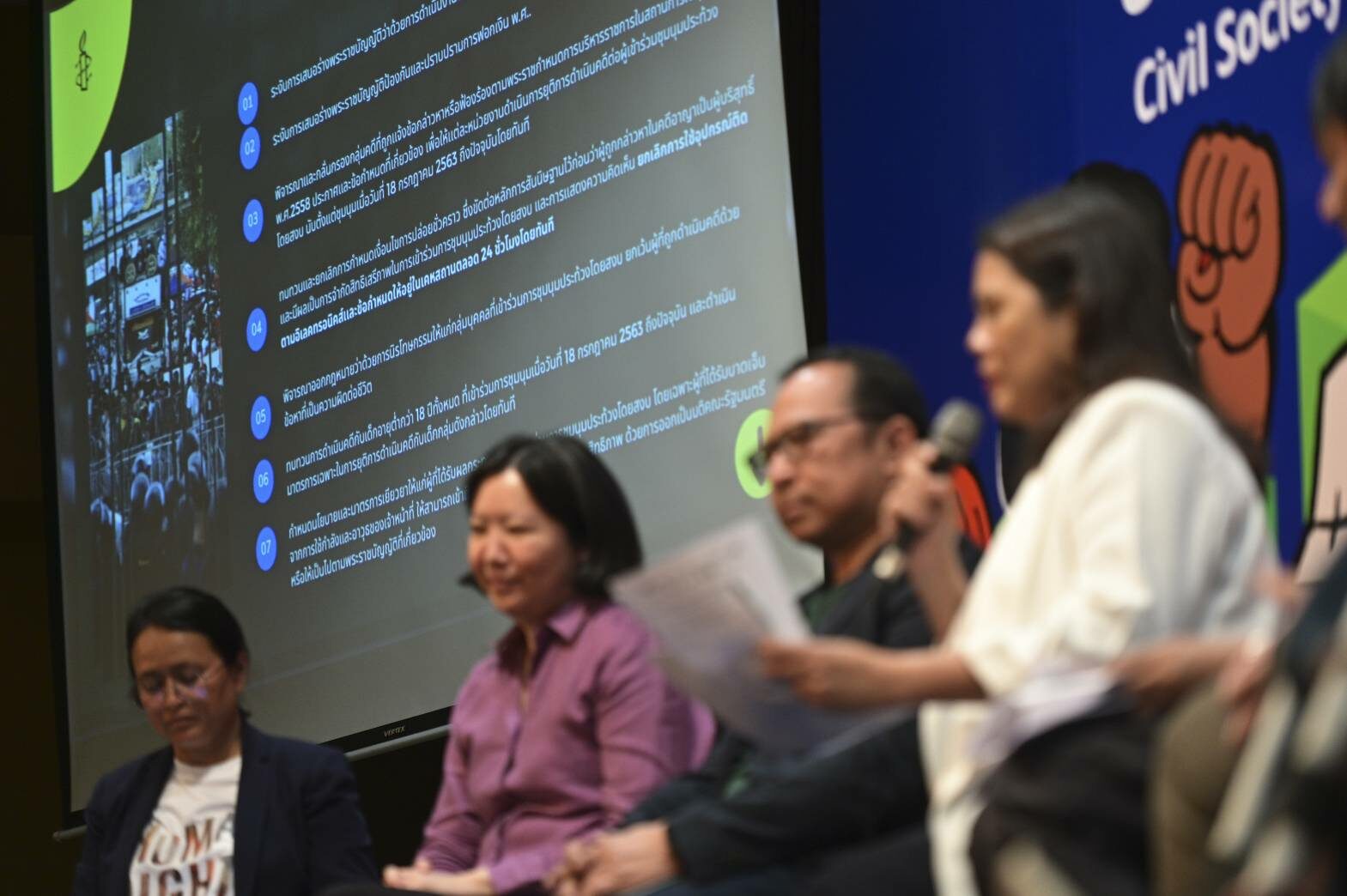
Sarinee Achavanuntakul, Managing Director, Knowledge Development of Sal Forest Co. Ltd., said that based on her years of research on business and human rights, she has found rights violations in business sector have been on the rise in various issues, particularly how Thai businesses have invested or bought supplies from neighboring countries in which the human rights protection mechanisms are weak or do not exist at all. This happens in the era while respect of human rights has become "universal ethics" for business operation.
“I urge all political parties to come up with policies to determine social responsibility of business sector clearly based on respect of human rights. This can help to enhance corporate responsibility, increase transparency and likewise increase the consumers’ power to hold businesses accountable, to ensure the level playing field. In addition, it helps to get Thai businesses prepared to act in compliance with the requirements increasingly imposed by trade partners in various countries including requirements on human rights. For example, we should legislate the laws to ban discrimination and to require that large corporations conduct Human Rights Due Diligence according to the UN Guiding Principles on Business and Human Rights (UNGP) throughout their supply chain. With such law in place, large agricultural companies shall be subject to in investigation if and how much they have been involved with the burning of plantation fields on low lying area or high land in their supply chain since this has become a chief contribution to the air pollution or the rise of PM2.5 in Thailand. They have to explain to the public measures to disincentivize burning among the farmers."
Tara Buakamsri, Director of Greenpeace Southeast Asia (Thailand), said that during the 2023 election, it is unclear if environmental policies will be a selling point for pollical parties. However, without the recognition of the right to a healthy environment, their human rights and environmental policies will simply become a tool for greenwashing exacerbating social inequality and incessantly escalating conflicts in the management of natural resources.
“Greenpeace believes that the kind of politics that contributes to a healthy environment must be built on social justice and an open democracy which embraces diverse ideas and offers the public a space in which they can actively and meaningfully participate in the decision making and determination of policies.”
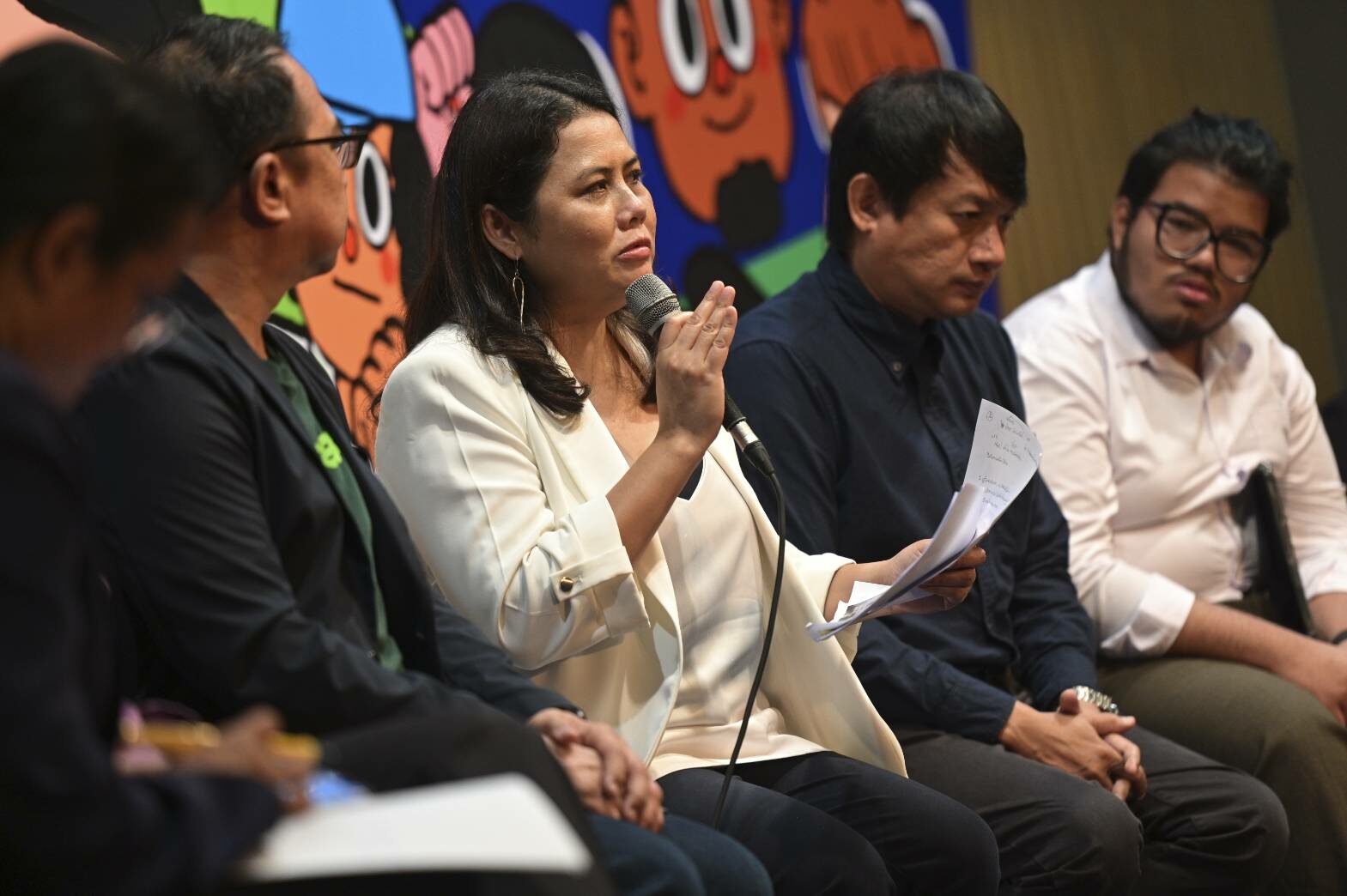
Piyanut Kotsan, Director of Amnesty International Thailand, said that human rights are a matter that concerns us all whether the persons have the right to vote or not. As long as they dwell in Thailand, they will become part of the next steps of the country. In addition, Thailand has committed itself to key obligations prescribed in international treaties including the respect, protection and fulfillment of various rights in compliance with human rights standards.
"This election is not merely a milestone that marks the transition of the administration or the operation of the Parliament, it is also an indicator which shows us how people’s representatives will use parliamentary mechanisms to ensure the best protection of people’s fundamental rights and freedoms, particularly the right to freedom of expression and peaceful; assembly which has been significantly restricted. The political parties that place people front and center are the parties that develop social policies based on human rights and it does not matter if they are part of the administration, or the opposition, or not getting elected during this election.”
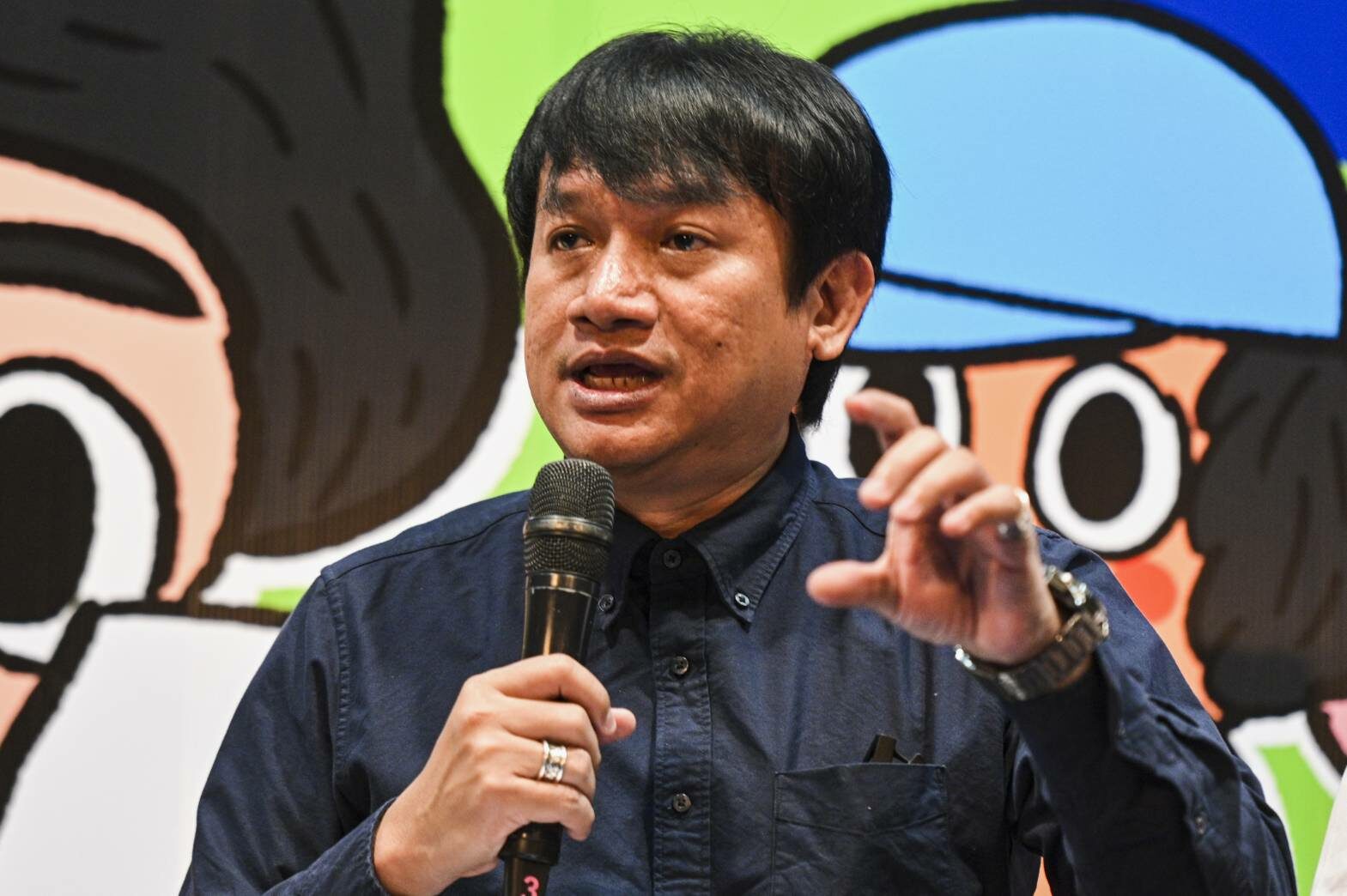
Nitirat Sapsomboon, Director ofState Welfare for Equality and Justice (We Fair), said that people have been tamed by the elite and neoliberalism making them accept the inequalities as a fait accompli. Meanwhile, we have 4.4 million poor people who earn less than 2,803 baht/month, while the rich in 40 families hold on to the property worth 143,595 million dollars which account for 28.5% of the nation’s GDP. More than 600,000 rais of land belong to the rich, the area which is equal to the area of Samut Prakan Province while there are numerous landless and homeless. More than 1.2 million children and youth have dropped out from the schooling system. Only 11% of children from impoverished families have made it to the university. Meanwhile, older persons and persons with disabilities receive state allowances at the rate 3-5 times lower than the poverty line.
“The 2023 election is a contestation between hope and hopelessness, democracy and right-wing dictatorship, autocratic state and welfare state, and the decentralization of power to local area, the welfare to enhance people’s quality of life and war weapons to cement powers of the army, the equal opportunity to education and the education business that keep exacerbating indebtedness, universal access to rights and the social work regime that stigmatizes the poor and discriminates against them, and the creation of a democratic constitution and the perpetuation of the autocrats.”
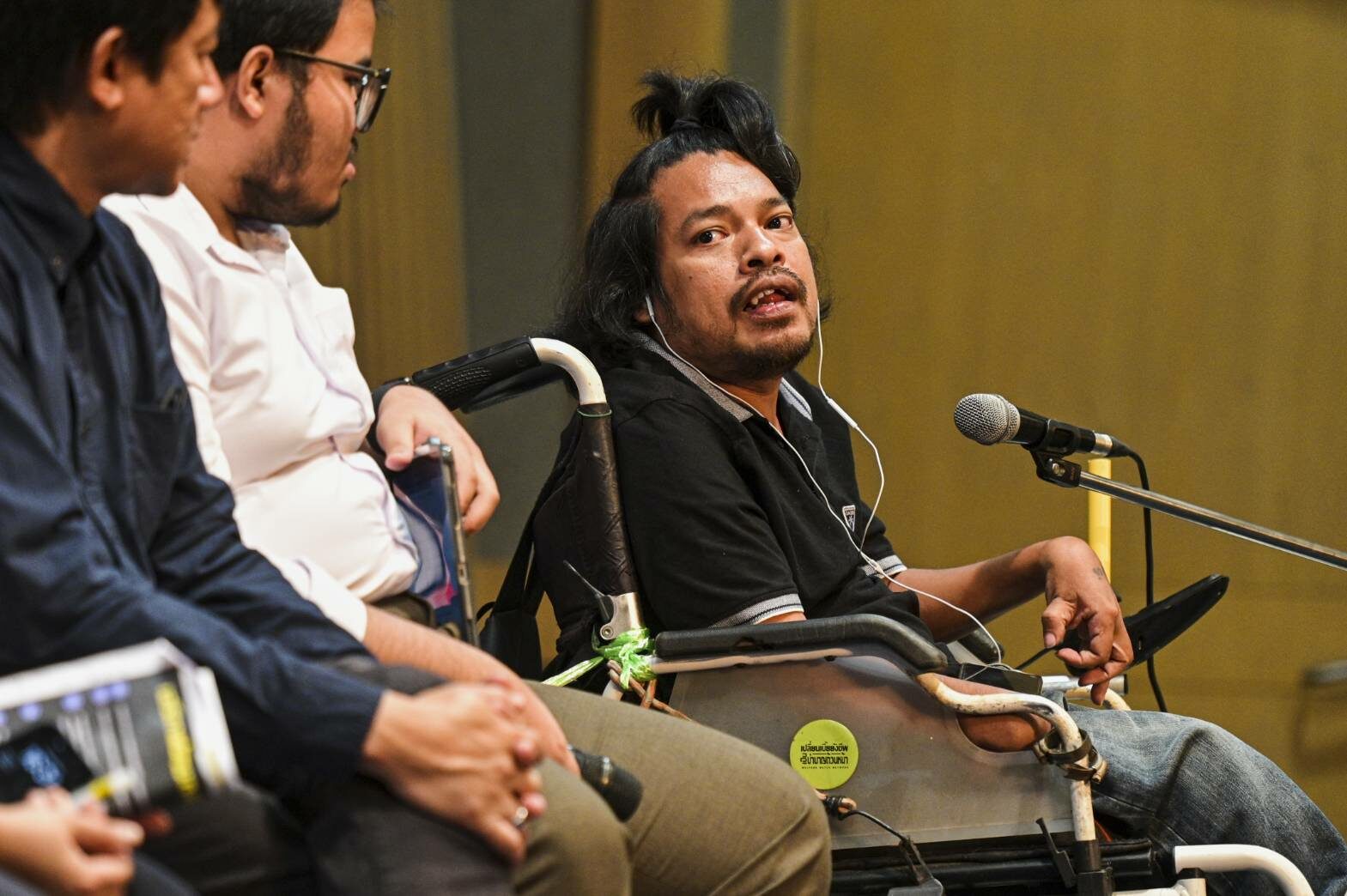
Athiphan Wongwai, Head of the It’s Time to Change Project, Mirror Foundation, said that in all election constituencies, services should be provided to ensure accessibility of persons with disabilities to help them to cast their votes. Some constituencies still lack such facilities and it is important to design the facilities to accommodate to all types of people.
“Persons with disabilities are determined to cast their votes to choose good people for the national administration. They want all political parties to come up with policies to promote employment and quality of life of persons with disabilities and to develop mechanisms to help persons with disabilities. Such policies shall not, however, be derived from the attitude of social work. Persons with disabilities should enjoy a pay rise to help them keep up with the cost of living and to incentivize people to offer help to the persons with disabilities. The mechanisms to help persons with disabilities should not be exclusively placed under the charge of the Village Health Volunteers. A fund should be set up to accommodate fully to the needs of the persons with disabilities. Most importantly, this election must respect the rights and voices of persons with disabilities.”
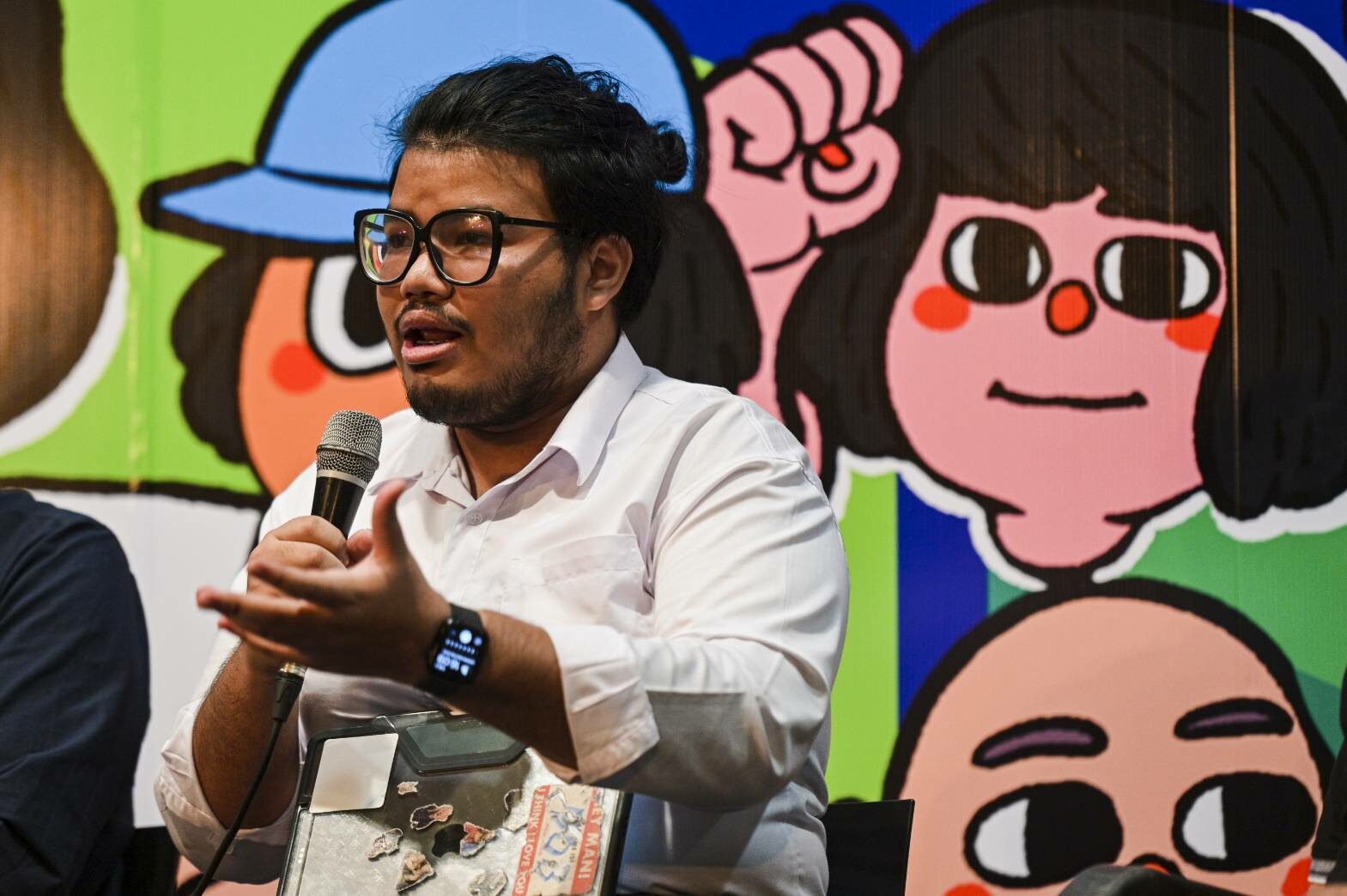
Nussaree Pumkue, the representative of a young generation, said that Thai society now teems with hopeless youths. Many children and youths have been pushed away from the education system. Meanwhile, there has been a rise of mental problems among children and youths. Worse still, many children and youths are not aware of their rights and their voices and their attempt to express their political views often end up being the receiving end of violence and prosecution.
“We have only a glimmer of hope now. This election is not just another election. If the outcome of this election is we win, and civil society’s demands are met, it will light up our hope and would drive children and youth to grow in Thai society. If the country’s leaders want us to grow up here, it is incumbent on them to create a health environment and good society that accommodate to our growth as well.”
The civil society reiterates that the election on 14 May 2023 marks an important occasion for candidates of the House of Representatives and political parties to place an importance on human rights policies. We encourage candidates of the House of Representatives and all political parties to adhere to the improvement of human rights situations per the recommendations that civil society has proposed to the political parties.
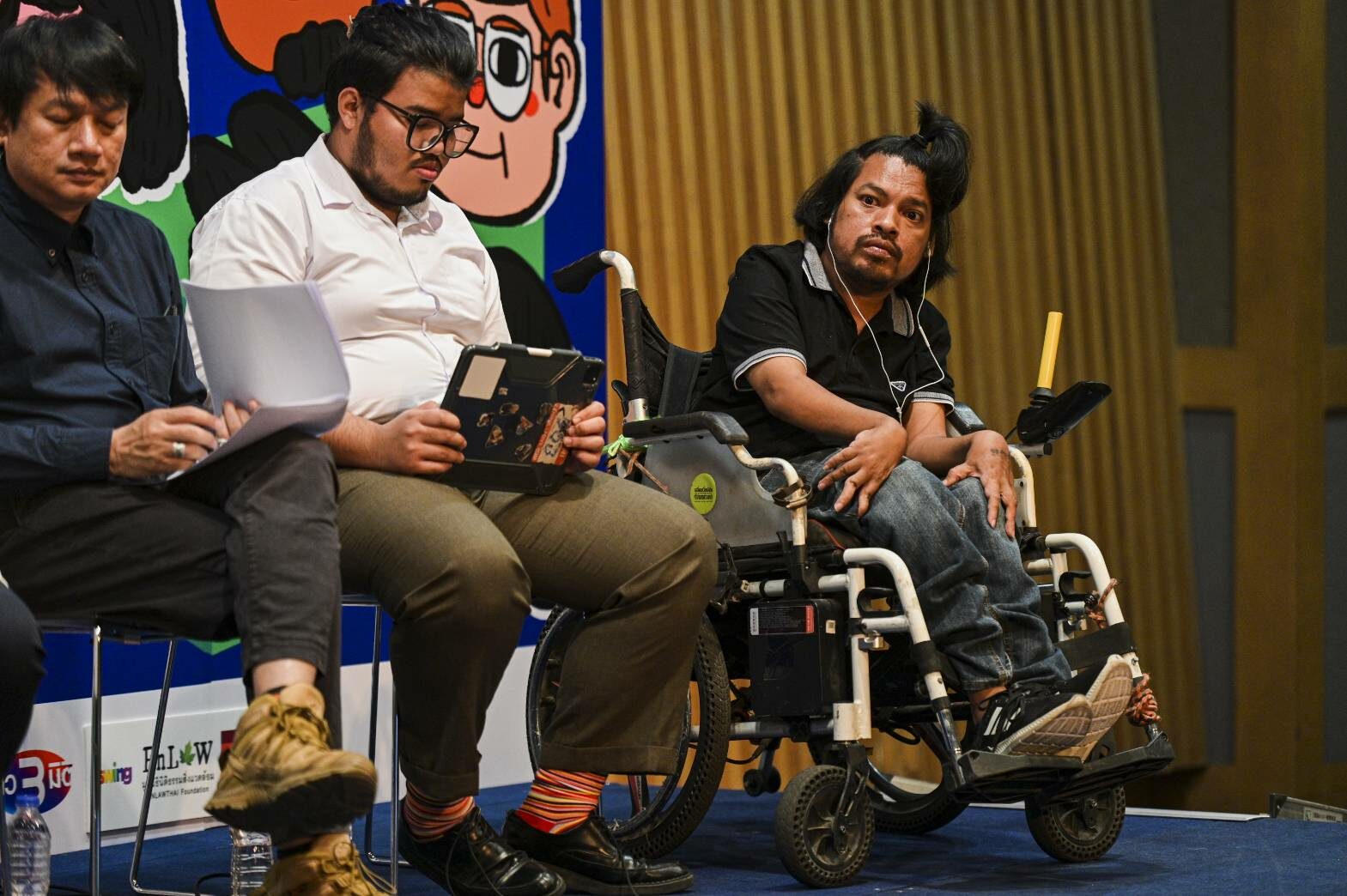
Note
For more information, please contact:
Somrudee Panasudtha, Media Campaigner, Greenpeace Southeast Asia (Thailand)
Phone 081 929 5747, Email spanasud@greenpeace.org
Naowarat Suesa-ard, Media and Communications Managerม Amnesty International Thailand
Phone 089-922-9585, Email media@amnesty.or.th


